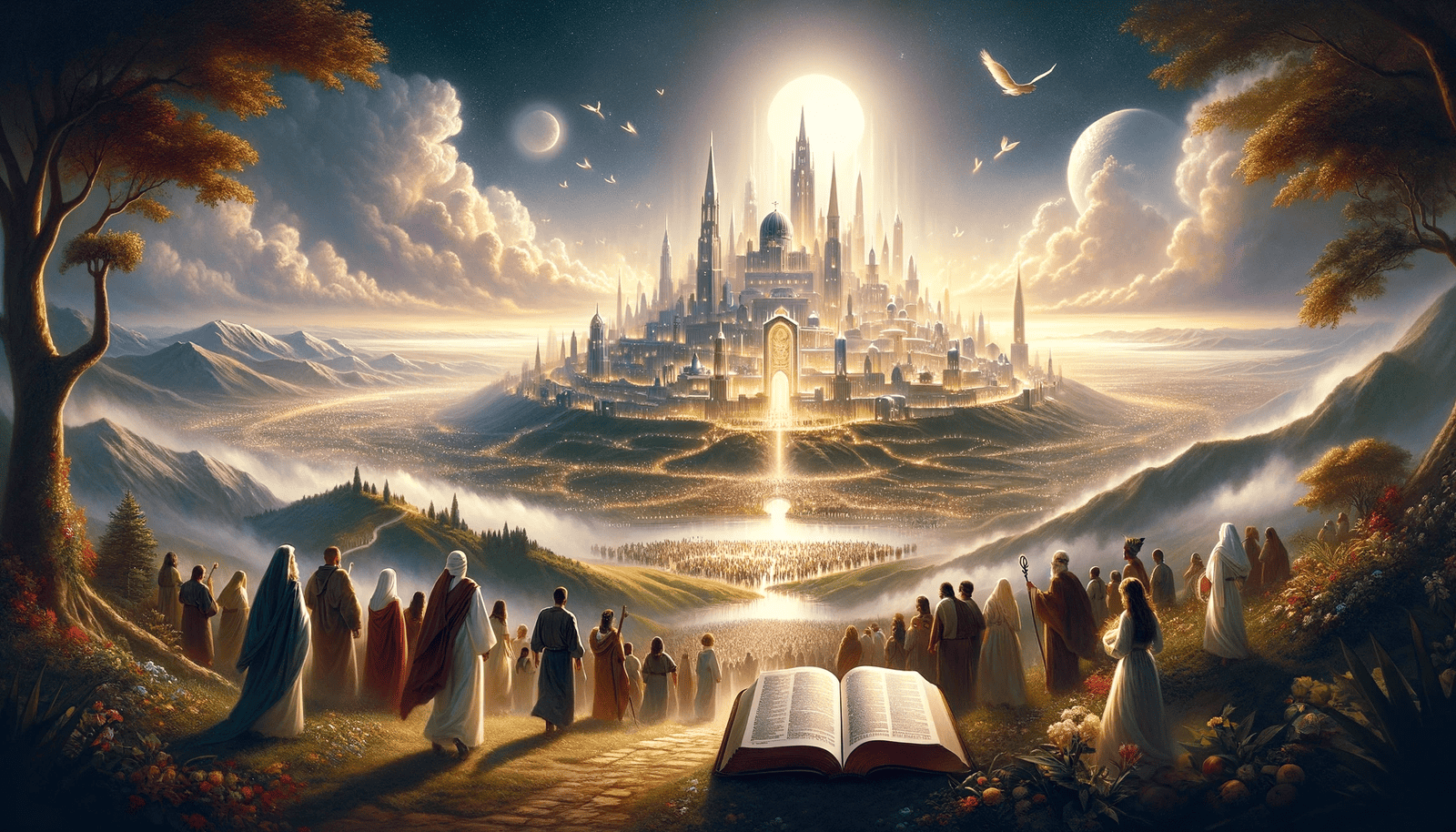At its core, Zion often represents the ideal dwelling place of God, signifying the sacred city of Jerusalem or, more broadly, the heavenly Jerusalem envisioned as the ultimate spiritual destination. It symbolizes God’s chosen people, the Israelites/Church, and their covenant relationship with him.
Throughout the scriptures, Zion is depicted as a place of holiness, justice, and peace, a beacon of hope and righteousness amidst adversity.
Is the Spiritual Meaning of Zion Connected to the Ark of the Covenant?
The spiritual meaning of Zion has a strong connection to the ark of the covenant contents. In religious teachings, Zion is often associated with the presence of God and considered a symbol of spiritual perfection. The ark, which housed sacred items, was seen as a physical representation of God’s presence among the Israelites.
Is Zion Connected to Familiar Spirits in Any Way?
There is a lot of debate surrounding the understanding familiar spirits concept and their connection to places like Zion. Some believe that Zion’s spiritual nature lends itself to being a magnet for familiar spirits, while others argue against any such association. Ultimately, it’s a topic that continues to spark interest and discussion.
The Spiritual Meaning of Zion
The concept of “Zion” in the Bible is rich and multi-faceted. Initially, Zion referred to a specific hill in Jerusalem, but over time, it took on broader theological and spiritual meanings. In Christian theology, particularly in the New Testament, Zion often symbolizes the church or the heavenly Jerusalem.
Here are some key scriptures from the King James Version (KJV) that relate to the prophetic statements and blessings of Zion, and its identification with the church:
- Zion as a Symbol of the Church:
- Hebrews 12:22-24: “But ye are come unto mount Sion, and unto the city of the living God, the heavenly Jerusalem, and to an innumerable company of angels, To the general assembly and church of the firstborn, which are written in heaven, and to God the Judge of all, and to the spirits of just men made perfect, And to Jesus the mediator of the new covenant, and to the blood of sprinkling, that speaketh better things than that of Abel.”
- This passage identifies the heavenly Zion with the Christian church.
- Prophetic Statements of Zion:
- Isaiah 2:2-3: “And it shall come to pass in the last days, that the mountain of the LORD’S house shall be established in the top of the mountains, and shall be exalted above the hills; and all nations shall flow unto it. And many people shall go and say, Come ye, and let us go up to the mountain of the LORD, to the house of the God of Jacob; and he will teach us of his ways, and we will walk in his paths: for out of Zion shall go forth the law, and the word of the LORD from Jerusalem.”
- This prophecy speaks of Zion as a spiritual center from which God’s teaching spreads to all nations.
- Blessings from Zion:
- Psalm 128:5: “The LORD shall bless thee out of Zion: and thou shalt see the good of Jerusalem all the days of thy life.”
- Psalm 134:3: “The LORD that made heaven and earth bless thee out of Zion.”
- These verses speak of the blessings that come from Zion, often interpreted as blessings from God’s spiritual presence.
- Zion as a Place of Salvation and Redemption:
- Joel 2:32: “And it shall come to pass, that whosoever shall call on the name of the LORD shall be delivered: for in mount Zion and in Jerusalem shall be deliverance, as the LORD hath said, and in the remnant whom the LORD shall call.”
- This verse connects Zion with salvation, a theme often associated with the church in the New Testament.
- Zion as a Symbol of God’s Presence:
- Psalm 9:11: “Sing praises to the LORD, which dwelleth in Zion: declare among the people his doings.”
- This Psalm associates Zion with the dwelling place of God, a symbolism often applied to the church.
These scriptures collectively illustrate how Zion is used in both the Old and New Testaments to symbolize God’s dwelling place, a source of teaching and blessings, and ultimately as a representation of the church in Christian theology.
Affiliate Disclosure: "As an Amazon Associate I earn from qualifying purchases made from links in this post. We are a participant in the Amazon Services LLC Associates Program, an affiliate advertising program designed to provide a means for us to earn fees by linking to Amazon.com."

